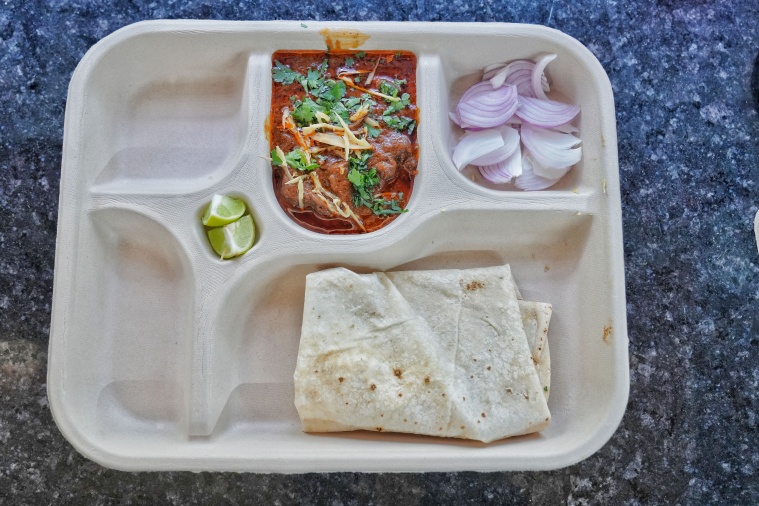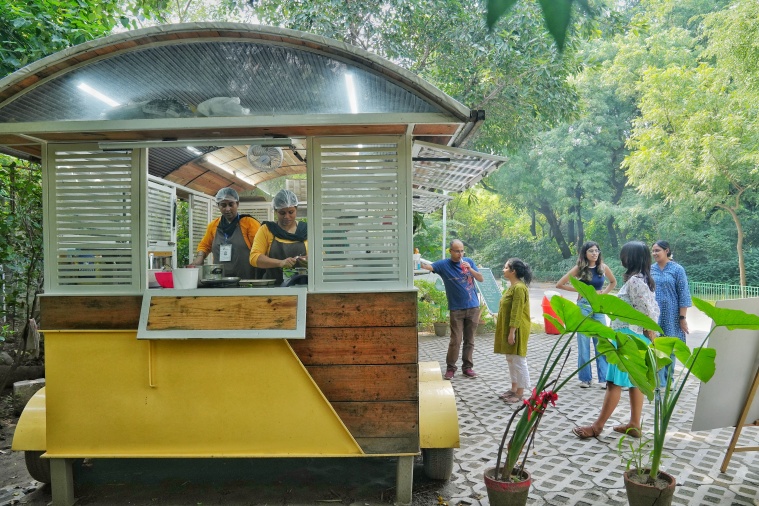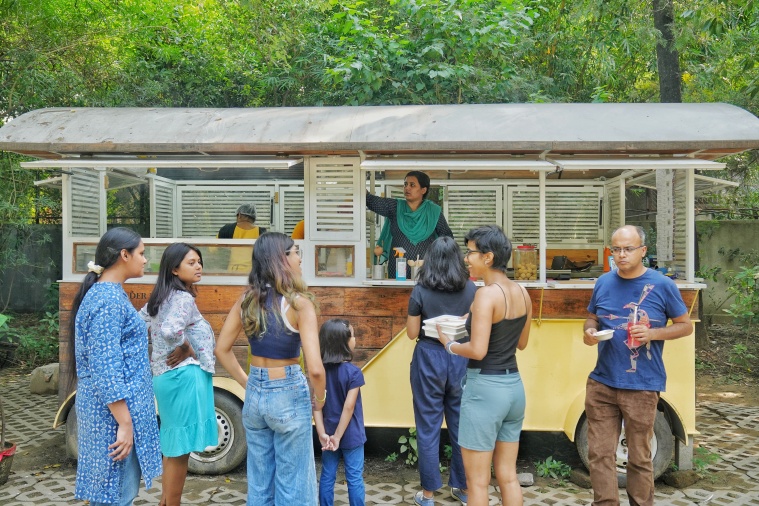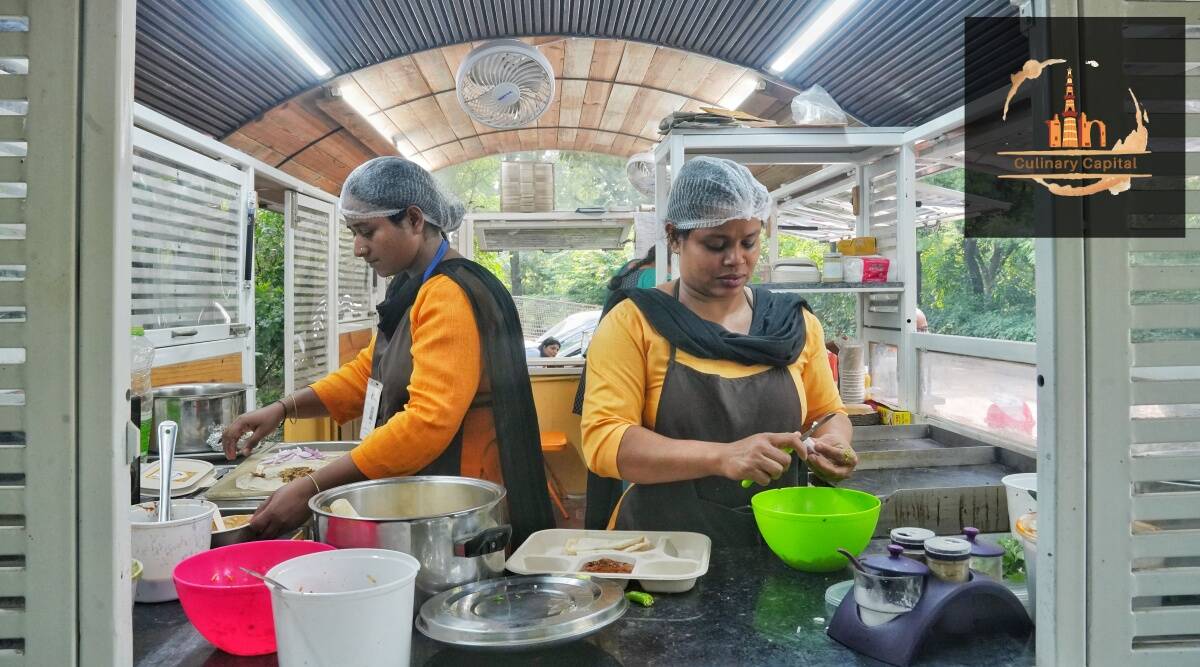[ad_1]
They say the way to a man’s heart is through his stomach, but what they probably never mentioned was that sometimes, the way to women’s liberation is also through the kitchen. At least in the case of this group of 11 women from Nizamuddin Basti, who have turned their daily grind into their forte, and are making a living out of it.
Called by the name of Zaika-e-Nizamuddin, this self-help group started more than a decade ago as a food stall at the annual Nizamuddin Basti Fair. Today, they run their own food truck at the Sundar Nursery, while also taking several catering orders as a perfect side hustle.
 The truck is loaded with goodies such as chicken and mutton nihari, chicken saalan, kachche chawal ki biryani and keema parantha. (Express Photo by Abhinav Saha)
The truck is loaded with goodies such as chicken and mutton nihari, chicken saalan, kachche chawal ki biryani and keema parantha. (Express Photo by Abhinav Saha)
The truck is loaded with goodies such as chicken and mutton nihari, chicken saalan, kachche chawal ki biryani, keema parantha, sheermal, and a couple of vegetarian items such as biryani and paneer tikka. But the supplies are limited and the wait can be longer than expected. Home-style food does come with its own limitations, but can be worth the effort.
The recipes are as old as the basti, which goes back 700 years. It was in the early 14th century that Nizamuddin Dargah – dedicated to Sufi saint Nizamuddin Auliya – was built. The neighbourhood surrounding the dargah, which came to be known as Nizamuddin Basti, was mainly occupied by the pirzade, the direct descendants of the Sufi saint.
Today, the cramped by-lanes of this predominantly Muslim neighbourhood are dotted by small lodges, eateries and shops selling objects pertaining to the Islamic culture, such as religious books, skull caps and ittar. But the most popular offering remains that of Mughlai food.
 The food truck, which started in late August, now operates all seven days of the week. (Express Photo by Abhinav Saha)
The food truck, which started in late August, now operates all seven days of the week. (Express Photo by Abhinav Saha)
There are scores of small establishments run by men from the Basti and neighbouring areas, also offering the likes of kebabs and keema and nihari, but what sets the group of women apart – apart from being the sole group of women – is also that their food is completely home-style, as opposed to the commercially produced curries of the area around the dargah.
In fact, there is a section in the menu called Ghar ka Khana on Nizamuddin Home Specials – including unique dishes like shalgam gosht, murg khichda, murg palak, keema aloo and daal gosht – “which is essentially what we eat at home,” says Noor Jehan, who leads the time of 11. “We don’t use any refrigeration methods, readymade curries, or shortcuts, and the kitchen is still located in the Basti itself, from where food is sent for catering orders as well as to the food truck,” she explains.
The food truck, which started in late August, now operates all seven days of the week, and Noor Jehan says they take turns by the roster so that everyone gets a fair chance and work is divided equally. “Even the payment is divided as per the number of working hours each of us puts in,” she says, adding, “Earlier, it was all in cash since we were not able to understand formal and digital payment processes. But now, from PayTM to NEFT, we understand it all.”
 The women take turns by the roster so that everyone gets a fair chance and work is divided equally. (Express Photo by Abhinav Saha)
The women take turns by the roster so that everyone gets a fair chance and work is divided equally. (Express Photo by Abhinav Saha)
They all have bank accounts, and the collective account is used by them for buying supplies and other expenses, which now also includes rentals for the truck at Sundar Nursery.
Talking about their journey, she says, “Initially when we thought of organising a food stall at the annual Basti fair, we all thought that instead of learning something unfamiliar, we should do something we all know too well – home-style Mughlai food.” The recipes were never written but passed on to us by our mothers and grandmothers, and to them, by their grandmothers, she says, adding, “We never imagined that one day, something as mundane as cooking at home can make us financially independent.”
The heritage of the Nizamuddin is perhaps not just about the scores of monuments it has and the Sufi qawwalis that soothe many, it’s also about food for the soul.
[ad_2]
Source link

